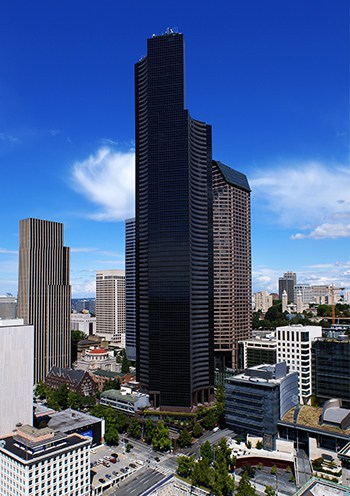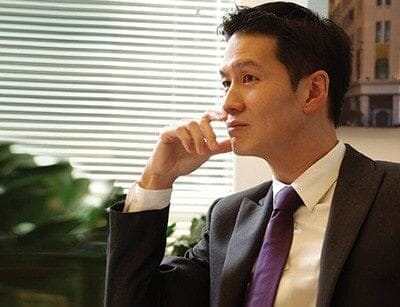
The Columbia Center in downtown Seattle (Image from Wikipedia).
Hong Kong’s Gaw Capital has led a group of Asian investors in buying Seattle’s tallest building for $725 million, according to published reports.
The acquisition of the 76-storey Columbia Center office tower from previous owners Beacon Capital of Boston could also signify the emergence of the west coast metropolis as a major new target for Chinese real estate investment that has already driven up property values in San Francisco, New York and other US urban centres.
Gaw’s role in the deal also confirms the growing significance of the family run investment house in cross-border deals involving Asian capital. In addition to making its own investments in properties in Hong Kong, mainland China and the US, Gaw has also been working with institutional investors from these locations in acquiring properties globally.
US Recovery Reviving Real Estate Values
The price that Gaw and its backers are paying is the second-highest ever for a property in Seattle, trailing only the $1.2 billion purchase by Amazon of its 167,000 square metre (1.8 million square foot) campus in 2012.
Neither Gaw nor its co-investors on the acquisition were available for comment, and the identities of the private equity firm’s partners in the office building purchase have not yet been revealed. In the past, Gaw has worked closely on deals with China’s Ping An Life Insurance, and has also advised on and co-invested in a number of property acquisitions by institutional investors from Korea.
While the deal for the 167,000 square metre (1.6 million square foot) Columbia Center may not be the biggest in Seattle’s history, the price works out to $4341 per square metre ($467 per square foot), a healthy rate for a building that was only 63 percent occupied in 2012. Brokerage Eastdil Secured represented Beacon Capital in the asset disposal.
Beacon bought the tower for $621 million in 2007, but had to refinance in 2010 after the recession hit, and the project is said to have struggled with loan payment and fallen into distress in 2012 after the departure of key tenants such as Amazon.
Since that time Beacon has rebuilt occupancy to 91 percent, according to data from Costar, however, a $80 million note to finance the project was scheduled to become due last month, likely helping to trigger the asset sale. Current tenants at the Columbia Center include Rhapsody International, an online unit of NBC News, and Freestone Capital Management.
Gaw Playing a Growing Role in Mainland Backed Deals

Gaw Capital’s Goodwin Gaw
The Columbia Center acquisition marks a first foray into Seattle for Gaw Capital, a group that has now invested in or advised on deals in Beijing, San Francisco, Los Angeles, Chicago, London and other locations.
In January of this year Gaw advised Ping An, one of the mainland’s biggest insurance firms, on the ₤327 million ($499 million) acquisition of Tower Place in London, and the private equity firm also manages the US$1.025 billion Gateway Fund IV, which it set up in 2013 to make property acquisitions.
According to Gaw’s website, the company has raised $4.26 billion in equity since 2005, and managed $9.16 billion in assets as of the end of the first quarter of this year.
Seattle Grows as Chinese Investment Target
As much as it marks Gaw’s growing role in the outflux of Asian capital into US and European real estate markets, the Columbia Center deal could also signal a growing role for Seattle as a target of that investment wave.
Previously, a number of Chinese groups have been acquired sites for residential development in Washington state’s largest economy, including a $30 million January 2014 deal by a Chinese investor for a site in downtown Bellevue, Washington, just across the lake from Seattle. In 2013, a Chinese-backed company called NIU Enterprises paid $31 million for another site in Bellevue which has approval for construction of a 450-foot tall tower.
Values in established gateway cities such as New York, Los Angeles and San Francisco have climbed rapidly in recent years, thanks in part to the inflow of capital from China and other international locations. With rents failing to rise in tune with the capital values, investment yields have been compressed, leading investors to look for alternative locations.
Seattle, whose tech-driven economy is home to companies such as Microsoft, Amazon and Zillow brings in an estimated $37 billion a year in revenue from its technology leaders, and already has a sizable Chinese community. Both of these factors could make the destination appealing to further acquisitions of commercial real estate by Asian investors.
Leave a Reply